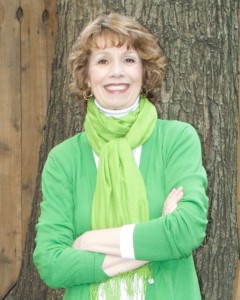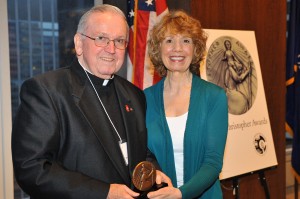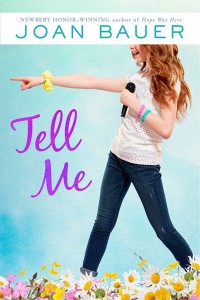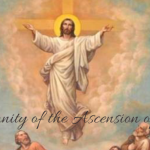 A car accident seemed to end Joan Bauer’s career before it even began.
A car accident seemed to end Joan Bauer’s career before it even began.
After spending several years studying to be a screenwriter, Joan signed with a big talent agency in New York City, ready to take on a new phase of her life. Two days later, she endured a debilitating car accident that left her in a great deal of pain and requiring neurosurgery. Angry and scared, she remembers lying in bed one day during the long recovery process and imagining that she saw an open window with her dream of being a writer flying out of it.
Then came what Joan calls the “cosmic joke.” She heard a voice inside her giving her ideas for a story about a young girl with a big dream. The voice said, “You can write this. It’s not over for you.”
Considering she had trouble even sitting at a desk, Joan believed this to be impossible. But as she told me during a “Christopher Closeup” interview, “Bit by bit, moment by moment and paragraph by paragraph, I wrote my first young adult novel and it ended up winning a big award.”
That novel was called “Squashed” and it was the first of 12 novels geared toward young adults that Joan has now authored.
 Along the way, her books have won two Christopher Awards, a Newbery Honor Award, and this year she was named the winner of the St. Katharine Drexel Award from the Catholic Library Association. All those accomplishments can be traced back to that still, steady voice that she almost wrote off as nonsense, the voice that taught her about the presence of God in our lives.
Along the way, her books have won two Christopher Awards, a Newbery Honor Award, and this year she was named the winner of the St. Katharine Drexel Award from the Catholic Library Association. All those accomplishments can be traced back to that still, steady voice that she almost wrote off as nonsense, the voice that taught her about the presence of God in our lives.
Joan explained, “Those moments of where it seems like it’s the end, it’s actually a new beginning. And it was strength coming from me that I knew was not in me…When we open ourselves up to that power that is beyond who we are and we let God have His way, let Him have our disappointments and the crushing things that happen yet still believe that there’s something good, that’s what it has been for me again and again.”
In light of her past struggles, it’s no wonder that hope, faith, and humor are common threads in Joan’s books. That holds true for her latest novel as well despite it’s serious subject matter: human trafficking.
 “Tell Me” is the story of Anna McConnell, a spunky, funny and empathic 12-year-old budding actress who temporarily moves into her grandmother Mim’s home while her parents deal with some marital strife. “It seems like nothing bad could ever happen here,” Anna observes about Mim’s hometown of Rosemont.
“Tell Me” is the story of Anna McConnell, a spunky, funny and empathic 12-year-old budding actress who temporarily moves into her grandmother Mim’s home while her parents deal with some marital strife. “It seems like nothing bad could ever happen here,” Anna observes about Mim’s hometown of Rosemont.
Anna suspects that’s not true after all when she briefly runs into a girl who looks very stressed out and is being controlled by an older woman with a bad attitude. Not everyone buys into Anna’s suspicions at first, but Joan makes sure her young heroine sticks to her moral core and says, “I saw something wrong. I’m not going to give up until somebody believes me.” Ultimately, it’s discovered that the girl Anna saw is being kept as a slave along with many other women in town. Everyone comes together to put an end to this travesty.
How did Joan get interested in the topic of human trafficking? She had some friends who were taking training to help women who had been trafficked. And as a member of the Screenwriter’s Guild, she was invited to a seminar about the work of the U.S. Homeland Security Department, which helps rescue trafficking victims.
The topic is handled in an age appropriate way, so it doesn’t deal with sexual slavery but rather people who are being enslaved as workers. “It’s happening in our country each and every day…I think the numbers I’ve seen [say there] are over 20 million [slaves] in the world, so this is something we have to address.”
When figuring out how to approach young people with such a harsh reality about the world, Joan always turns to a story she once heard Fred Rogers of “Mr. Rogers’ Neighborhood” tell: “He said that when he was a boy and something frightening happened in his community or the world, he would go to his mother and she would always tell him, ‘Don’t look at the scary thing; look at the people who are helping.’ This is a story about a scary thing, but we don’t see it. It’s about the people who are running in to help. That was the frame for me around how I discussed it.”
The power of community is another major theme of “Tell Me” because Joan has seen that truth in her own life. She said, “I’ve never done anything by myself, except put my makeup on and fix my hair occasionally. People are stronger together. That’s something that I learn more and more as I’m an aging adult…It starts with one girl seeing [something wrong], and it moves into an entire community. When [things like that] happen in real life, those kinds of things really make God smile. [But often we only] see, ‘Oh, the community came together.’ We don’t see the fact that one kid had to knock on a lot of doors to be heard. One of the things I so want to do, Tony, is I want to help kids see that they have this hero inside. They might not know it’s there, but all of a sudden when that’s tapped, wow, is that a point of empowerment.”
A lot of Joan’s own sense of empowerment stems from her faith. She credits her mother and grandmother with planting the seeds of faith in her life, but also admits “the garden [didn’t come] up right away. When I [did get] a hold of that, I began to pray. [Then] my mom got cancer, my dad died very tragically. There were a bunch of things that happened in my life, and in each one of those things I actually felt God’s hand on my shoulder. I’m such a dramatic person that I think I needed to have something dramatic like that to know this is real…When I realized that God really did love me and had a plan for me, it [became] personal and changed things immeasurably for me.”
As a writer, Joan has always been drawn to the stories of Christianity: “It is the story of all these people who were failures, who really messed up. And again and again and again, the living grace comes in and [says to] Abraham and Gideon, ‘I know what you can be. Take hold of my hand.’ So it’s that story of God making man more than we could ever imagine when He touches our hands.”
Like the title of one of Joan’s Christopher Award-winning books – “Hope Was Here” – indicates, she yearns to impart this important virtue to young people who read her novels.
She concludes, “Kids have become very jaded. They’ve seen a lot of role models fall. They’ve seen difficulties in the world. And yet, one of the reasons that I love thinking about stories through the eyes of a young person is there’s still this idealism. There’s still this positive core…So I would love to see someone do a curriculum on hope…As we know, a story can teach you life lessons in powerful ways. I got a letter [about] ‘Hope Was Here’ [from] a girl who had leukemia. She got it when she was 12. And she actually read ‘Hope Was Here’ all during her chemotherapy. It was the only thing she read. And she said, ‘Mrs. Bauer, I don’t know what to tell you other than that I don’t have leukemia anymore, and that book just helped me. It just helped me.’…When [kids] find something that has hope, I think they really want to grab onto it. So let’s give them more.”
(To listen to my full interview with Joan Bauer, click on the podcast link):
















